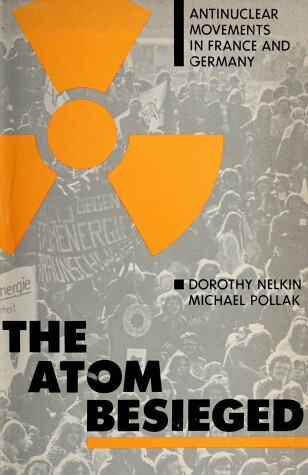"Pennsylvania is everywhere!"This was the rallying cry throughout Europe in the aftermath of the Three Mile Island accident. Certainly the fears of anti-nuclear activists for their safety and for the well-being of future generations provided emotional fuel for the demonstrations, whether fears were based on expertise and factual documentation or on instinctive reactions to the unknown. But "The Atom Besieged" argues that persistent opposition to nuclear power goes well beyond the fear of risk: it is a social movement that embodies fundamental questions about the social and political properties of nuclear technology and its effect on political life."The Atom Besieged" shows how opposition to the proliferation of nuclear power plants goes from basic social concerns about "the effect of technological change on traditional values, the gradual industrialization of rural areas, the concentration of economic activities, the centralization of decision-making power, and the pervasive intrusion of government bureaucracies. For many critics of nuclear power the development of this technology is an important example of such problems; they talk less of nuclear energy than of a 'nuclear society.'"The authors chose France and Germany for their study of the extraparliamentary conflict over nuclear policy because these countries are comparable in terms of their economic and social development, and they are the leading producers of nuclear power in Western Europe. The governments of both countries greatly escalated their nuclear commitments after the 1973 oil crisis, with little or no political debate within the parties or parliaments. Their nuclear politics provoked a comparable mobilization of antinuclear activists. But while this social movement had virtually no policy effect in France, it imposed a moratorium on nuclear power development in Germany. The book's comparative analysis shows how the distinct political systems and cultural traditions of each nation shaped the protest movements and determined their policy effects.The book traces in detail the administrative mechanisms through which "nucleocrats" operate, suggesting how the limited role of representative institutions opened the way to extraparliamentary dissent. It describes the sources of opposition and the organizational, ideological, and tactical evolution of the movement. Finally, it traces how the two governments and their legal systems responded to a protest that has posed basic questions about legitimacy and political control.
- ISBN10 0262140349
- ISBN13 9780262140348
- Publish Date 6 November 1980
- Publish Status Out of Print
- Out of Print 28 February 2001
- Publish Country US
- Publisher MIT Press Ltd
- Imprint MIT Press
- Edition New edition
- Format Hardcover
- Pages 256
- Language English
